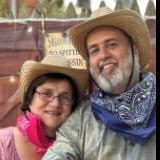Collective Animal Nouns: A Pandemonium of Parrots and More —a Glimpse of Wonder entry™—
When you think of collective nouns for animals, chances are “a murder of crows” is the first that comes to mind. But have you ever heard of “a pandemonium of parrots”? These delightful and chaotic descriptors are just a few examples of the creative terms we’ve given to groups of animals. These names not only capture the unique characteristics of each species but also reflect the richness of language and history. Let’s explore their fascinating origins and enduring charm.
The History Behind Collective Animal Nouns
The tradition of assigning unique names to animal groups dates back to the 15th century, when English nobles developed a passion for hunting and language. These terms, often called terms of venery, were compiled in books such as the Book of Saint Albans (1486). Initially intended to reflect the behaviors, traits, or symbolic associations of animals, these terms also showcased the speaker’s wit and education.
For instance:
• A Murder of Crows: Reflects the crow’s association with death and superstition, a connection rooted in folklore (crows belong to the corvid family, which also includes ravens).
• A Pandemonium of Parrots: Captures the chaotic energy of these vibrant, noisy birds.
These collective nouns were descriptive, poetic, and sometimes humorous, enriching the English language with a playful yet insightful way of viewing the natural world.
Whimsical Names and Their Meanings
Here are some of the most unique collective nouns, each offering a glimpse into the traits or folklore surrounding these animals:
• A Murder of Crows: Reflecting crows’ ominous reputation (crows belong to the corvid family, which also includes ravens).
• A Pandemonium of Parrots: Describes the colorful chaos parrots create in groups.
• A Parliament of Owls: Inspired by their symbolic association with wisdom in mythology.
• A Crash of Rhinos: Evoking the thunderous sound of a rhino herd in motion.
• A Dazzle of Zebras: Highlighting the stunning visual spectacle of their striped coats in groups.
• An Unkindness of Ravens: Similar to crows, ravens (also part of the corvid family) are linked to superstition and mystery.
• A Shiver of Sharks: Likely inspired by the fear and chills they provoke.
• A Tower of Giraffes: Highlights their impressive height.
A Playful Nod to Sesame Street
This whimsical approach to language recalls the tone of Sesame Street, a show that made learning fun and memorable for generations. Lyrics from the song What Are Kids Called?, performed by Bob and Susan, humorously explore the names of animal offspring:
“Cats have kittens
Doggies have pups
Horses have pretty foals
And sheep have lambs…”
This delightful song aligns perfectly with the theme of collective nouns, as both teach us about the world through play and creativity. If you’d like to revisit this charming tune, it’s available on YouTube.
Why Do We Use These Names?
The reasons behind these quirky names often tie back to:
1. Folklore and Symbolism: Names like “murder of crows” and “unkindness of ravens” reflect cultural superstitions about these birds.
2. Behavioral Traits: Terms such as “pandemonium of parrots” or “crash of rhinos” highlight the animals’ typical actions or sounds.
3. Visual Characteristics: Names like “dazzle of zebras” or “tower of giraffes” describe their striking appearances in groups.
These terms offer not only an observational lens into nature but also a glimpse into the creativity and culture of past generations.
The Wonder of Words and Mankind’s Creative Assignment
The ability to name animals is not just a linguistic quirk but a reflection of mankind’s God-given creativity. The Bible records that Jehovah entrusted Adam, the first man, with the task of naming all the animals. Genesis 2:19, 20 states:
“Now Jehovah God was forming from the ground all the wild animals and all the flying creatures of the heavens, and he began bringing them to the man to see what he would call each one; and whatever the man would call each living creature, that became its name. So the man gave names to all the domestic animals and to the flying creatures of the heavens and to every wild animal of the field.”
This unique assignment highlights not only Adam’s role in creation but also mankind’s capacity for imagination and creativity—a gift from Jehovah. The ability to observe, interpret, and create meaningful names mirrors the thoughtful design seen in creation itself.
As descendants of Adam, humans continue to exercise this gift, evidenced by the whimsical and descriptive collective nouns we’ve developed for animals. Words like “a pandemonium of parrots” or “a murder of crows” show how language evolves, allowing us to blend creativity with observation in ways that honor Jehovah’s original purpose.
Reflecting Jehovah’s Creativity
The naming of animals by Adam and the creativity demonstrated by humans today in crafting terms like “a dazzle of zebras” serve as reminders of the qualities instilled in mankind. Jehovah, as the ultimate Creator, shared with us the ability to observe, imagine, and create. These abilities allow us to marvel at the natural world and to find joy in expressing what we see—a true glimpse of wonder.
What’s Your Favorite?
What’s your favorite collective noun? Perhaps it’s “a prickle of porcupines” or “an ostentation of peacocks.” Share your thoughts and join the conversation about these delightful quirks of the English language. Let’s celebrate the creativity and wonder that Jehovah has gifted to mankind.
Sources: Genesis 2:19-20, Assembly of Animals: The Origins of Collective Names, Sesame Street - What Are Kids Called Lyrics, Book of Saint Albans, List of Animal Names.
Edited by dljbsp
- dreamy and just1-4all
-
 1
1
-
 1
1


2 Comments
Recommended Comments
Join the conversation with your brothers and sisters!
You are posting as a guest. If you are already a member, sign in now to post with your existing account.
Note: Your post will require moderator approval before it will be visible.